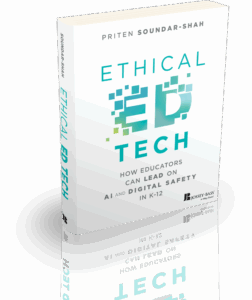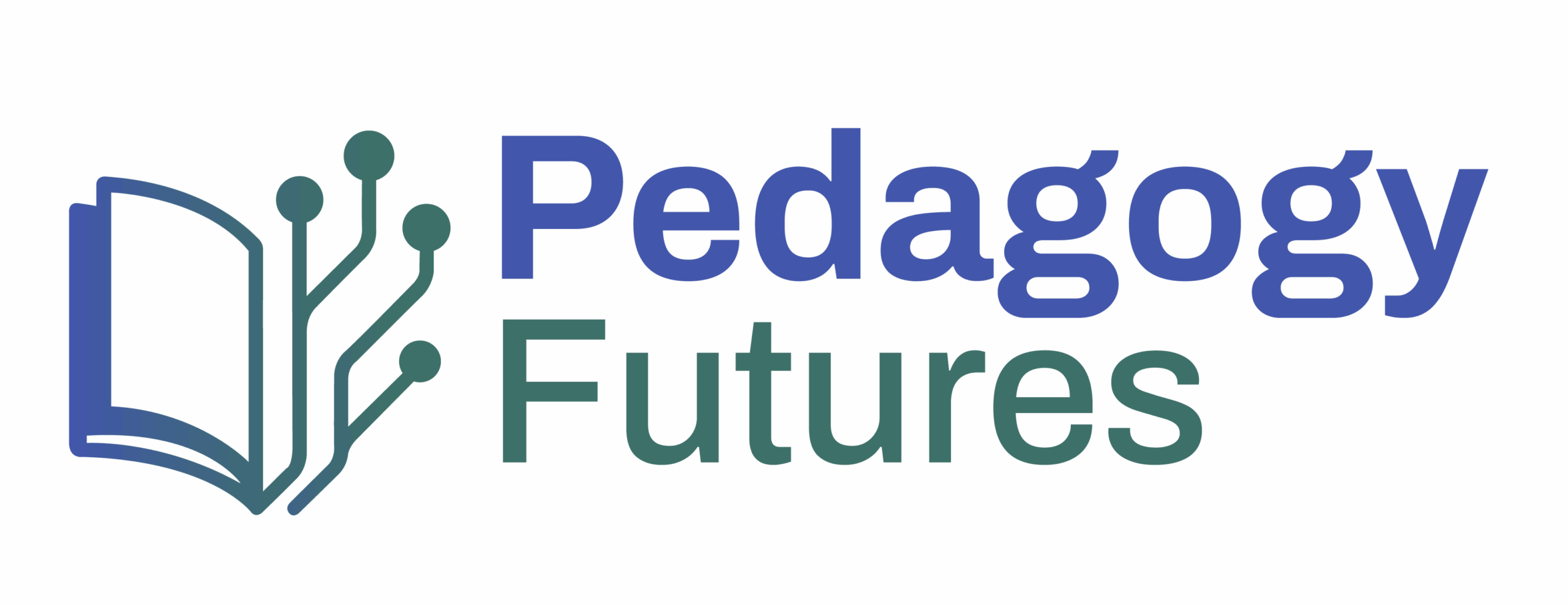Key Details
Course Format:
The 6-module asynchronous course includes recorded lectures, assigned readings, 3 assignments and a final written reflection.
Dates:
Earliest Start: March 1, 2025 (or anytime after)
Registration Deadline:
Rolling
Price Without Credit:
$75
Price With Credit 1 Graduate Credit from SNHU:
$195
Contact us
Please get in touch with us for purchase orders, bulk orders, and other questions.
Email: [email protected]
Overview
This asynchronous course is designed to provide an overview of artificial intelligence (AI) and its applications for educators, including curriculum development, classroom activities, and professional development. The course will also explore critical issues like academic integrity and the ethical issues of AI in education. The course is divided into six modules, with each module focusing on a particular aspect or use of AI for educators. There will be time slots available to sign up for live office hours with course instructors as well as discussion forums for engaging with other students.
Learning Objectives
This course is designed to be an introduction to teaching and learning with AI. By the end of the course, participants will be prepared to
- Use AI tools in their daily tasks like curriculum planning, paperwork, and communication
- Incorporate the use of AI tools into their classroom activities
- Reflect on the issues presented by AI use in education, like plagiarism and ethical concerns
Required text
Shah, Priten. (2023). AI & The Future of Education. Jossey-Bass (Provided as part of the course fee)
Course Outline
Module 1: Introduction to AI in Education: This module provides an introduction to AI, generative AI tools, and the features of different AI tools that make them useful for educators. It also provides an overview of the key questions that have been raised about AI over the past few years and a quick look into the future of AI and education.
Reading: Chapters 1-3
Module 2: Using AI for Daily Tasks: This module will explain how educators can incorporate various AI tools into their administrative tasks like communication, paperwork, and reporting, as well as lesson planning, creating materials, and developing assessments.
Reading: Chapters 5-6
Module 3: Beyond Lesson Planning: This module will dive deeper into the uses of AI for curriculum planning, particularly focusing on using AI for personalizing learning, differentiating content to various learning needs, developing innovative assignments, and project-based learning.
Reading: Chapter 4
Module 4: AI for Formative Activities: This module will explore when, why, and how to integrate AI tools into student work in and out of the classroom. It will discuss building AI literacy skills, student-safe uses of AI, and ways that AI can enhance the learning process.
Reading: Chapters 7 & 8
Module 5: Plagiarism, Academic Integrity, & Ethics: This module will cover the topics of AI misuse and how to combat it and provide resources for teachers to craft an effective AI-use policy for their classroom. It will also address key ethical concerns presented when integrating AI and how to mitigate those concerns.
Reading: Chapter 9 and explore the resources on this page
Module 6: Staying Up-to Date with AI Developments: This module will share helpful tips on staying current with the rapidly-evolving field of AI and education and suggest ways that teachers can employ AI for their own professional growth.
Reading: Chapters 10 & 11
Assignments:
Assignment 1 (to be completed after module 2):
- Use a chatbot to create a lesson plan, worksheet, and assessment on a topic you teach about. You can submit screen shots or a separate document, just make sure to include the prompts you used, including any follow up prompts. You can complete this assignment as one continuous conversation or 3 separate conversations.
- Use AI to draft an email to either parents or students about a topic or issue you commonly communicate about. You can either submit screenshots, or a separate document, just make sure to include the questions that you asked, including any follow up questions.
- Reflect on your experience using AI for curriculum development and communication tasks. What tool(s) did you try? Did the output fit your needs? How would the output need to be modified? How might you incorporate the use of AI into your curriculum and communication tasks this coming year?
Assignment 2 (to be completed after module 4):
- Using the AI tool of your choice, create an updated version of an assignment or activity that you have used in your classes previously.
- Design and activity or assignment that incorporates student use of AI to enhance learning or teach AI literacy skills.
Assignment 3 (to be completed after module 6):
- Outline an AI use policy for your school or classroom. This can be real or imagined based on your context. You may use AI to help craft your policy, but it is not required.
Final Essay: Personal Reflection on Teaching in the Age of AI
In a 2-3 page reflective essay, examine your role as an educator in the rapidly evolving landscape of artificial intelligence and education. Drawing from your experiences and professional development, analyze how AI is reshaping the educational environment and discuss your vision for adapting your teaching practice to meet these changes.
Instructor:

Nina Bamberg
Director of Curriuculum & Instruction, Pedagogy.Cloud
Nina Bamberg has an MA in International Educational Development from Teachers College at Columbia University with a concentration in Peace and Human Rights Education. Her professional background includes teaching English as a second and foreign language, non-profit program management, and adult education.
As the Director of Curriculum & Instruction at Pedagogy.Cloud, she develops and leads professional development workshops and courses designed to help educators navigate the changes and challenges posed by artificial intelligence. Some recent workshops and courses include AI, Human Rights & Education, AI & Education Summer Boot Camp, Designing AI-Proof Assignments, and AI for the ELA Classroom. She also leads a team that develops and disseminates curriculum and policy resources and conducts research on AI policy and governance.
Nina also serves as the Director of Programs at United 4 Social Change, a non-profit that aims to increase access to an interdisciplinary civics education through curriculum resources, professional development, and student leadership workshops. She also serves as a course associate at Columbia’s School of Professional Studies and as a Citizenship Educator at The New York Historical.
Nina is also a member of several professional coalitions working to improve access to quality civics and AI literacy education, including Democracy Ready NY and CivxNow, where she’s an active member of the AI Work Group.

